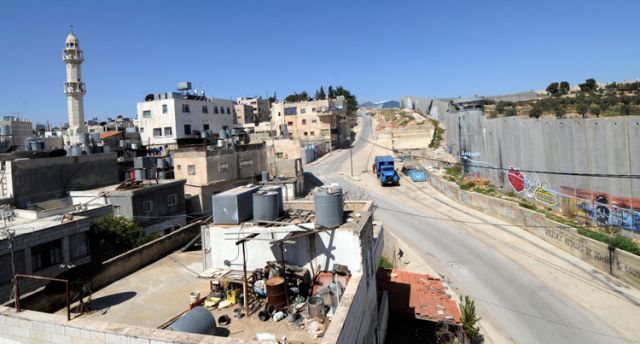Gatineau Archbishop Paul-André Durocher, CCCB president, wrote to John Baird on Jan. 28 to express concern about a proposed section of Israel's security wall that will bisect the Cremisan Valley south of Jerusalem. The wall will separate families from their farmland, prevent 400 poor students from attending a school run by Salesian sisters, place the Salesian convent "in a military zone" and separate the convent from a nearby monastery.
"We ask your government to raise our objections about the extension of the security wall in the Cremisan Valley, with the hope that a change to the present Israeli plan could become one step forward toward making it possible for Palestinians and Israelis to live in peace and justice," the CCCB president wrote.
Durocher said he would welcome an opportunity to meet with Baird to discuss this and other Holy Land issues.
"Consistent with the Holy See's position, Canada's Catholic Bishops are aware of Israel's need for security, and we fully support that right," he said. "Nevertheless, we believe the wall as planned will only deepen the wounds between Palestinians and Israelis."
"We are convinced, with our brother bishops from around the world, that the extension of the wall will raise more scepticism from the international community," the archbishop wrote, noting many already perceive the security wall as "an illegal 'land grab.' "
Israel's security wall, begun during the 2002 Intifada uprising, is a concrete barrier as high as eight metres in some parts that stretches for more than 425 kilometres through the West Bank territory.
Durocher recently participated, along with several other bishops from around the world, in a tour of the affected area. The matter is urgent, he said, because the Supreme Court of Israel has begun hearings on the legality of the Cremisan Valley wall. The Cremisan Valley is located on the Palestinian side of the so-called Green Line, the pre-1967 demarcation line separating Israel from Gaza, the West Bank and the Golan Heights. It is currently part of the lands occupied by Israel.
"The barrier will harm those families whose livelihoods depend on these lands, and will cut off other families from their agricultural and recreational lands and water sources," Durocher wrote.
The barrier will also have a devastating effect on a Salesian Sisters' convent. Durocher said the sisters run a school for 400 poor children. They also provide employment through the school and in their orchards. Most of the convent's lands will be expropriated to build the wall.
"Indeed, the convent will be in a military zone surrounded on three sides by towers, walls and wires and patrolled by armed soldiers," Durocher wrote.
The barrier will separate the convent from a Salesian monastery for male religious, cut off the monastery from Bethlehem and prevent local Palestinians from working in the monastery's vineyard and winery, he said. The monastery will also lose revenue from the sale of olive oil, wine and produce to tourists and pilgrims.
A statement from the Bishops of the Holy Land Coordination also called for international pressure to reroute the wall. The bishops called the Cremisan Valley wall illegal and a "flagrant breach of the Geneva Convention and the Universal Declaration of Human Rights."


